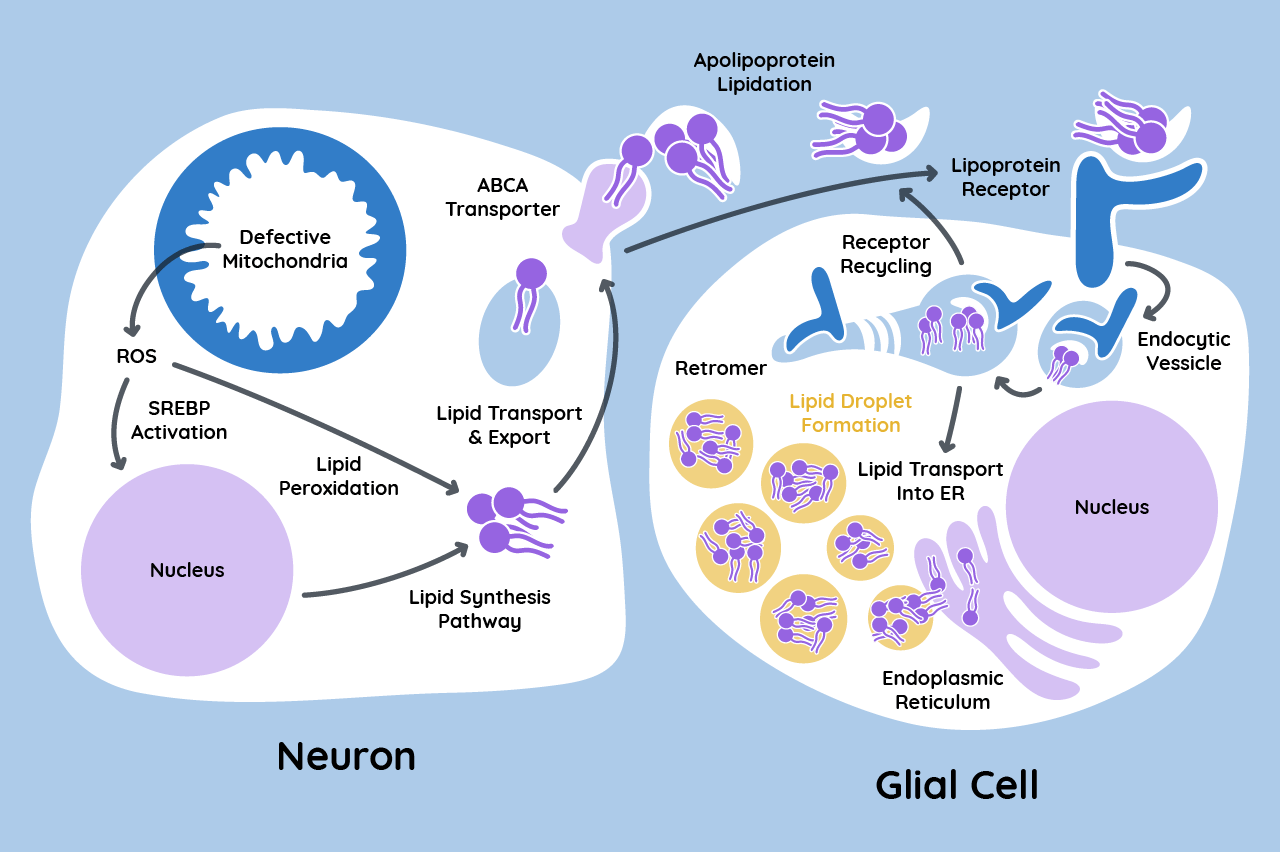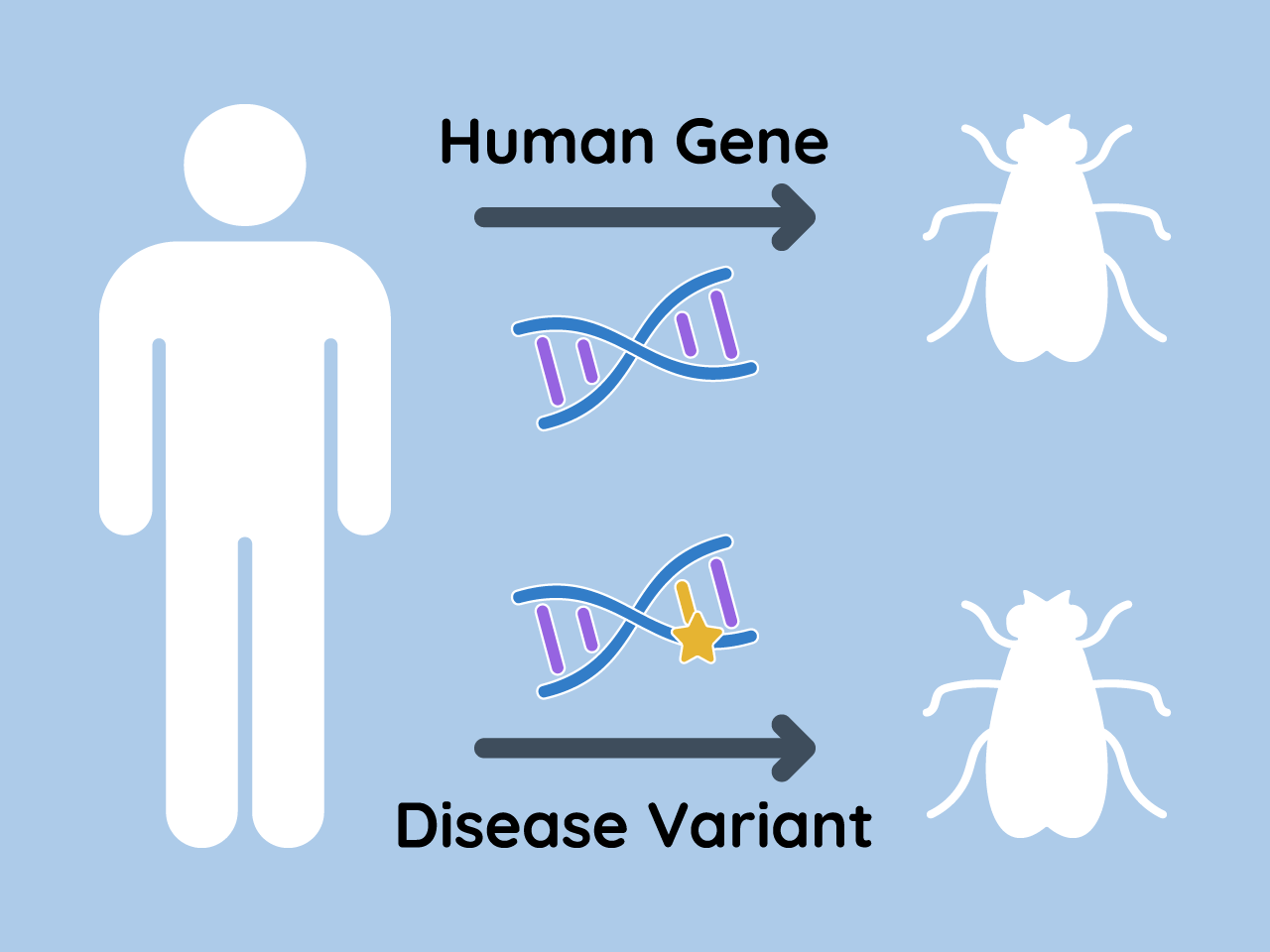Drosophila Genetics
Research in the Moulton Lab focuses on delineating the molecular mechanisms of genes associated with neurological disease, especially Alzheimer's disease. We utilize the genetic model organism, Drosophila melanogaster (fruit fly), to understand the consequences of disease-associated genetic variation. Using genetic technologies, human DNA sequences are swapped into the fly genome in place of the fly gene in order to probe the effects of specific variants on gene and organismal function (called humanization).

Lipid Droplet Biology
In the brain, proper neuronal function is supported by glial cells. When neurons experience oxidative stress (caused by neuronal activity, age, disease, etc.), they produce fatty acids which absorb oxidative radicals and are transferred to glia where they accumulate in fat storage organelles (called lipid droplets). Lipid droplets in glia can function to sequester toxic, oxidized lipids and prevent neuronal cell death and brain degeneration.
Disease Variant Analysis / Humanization
Using humanized fly models, we analyze the effects of disease-associated genetic variants on glial lipid droplet formation and neurodegeneration. Our research methods have the potential to shed light on mechanisms of complex neurological disease by aiding the identification of risk genes important for disease, determining their molecular function, modeling gene loss and variation on neurodegeneration, and identifying novel pathways for therapeutic interventions.

